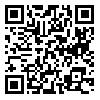BibTeX | RIS | EndNote | Medlars | ProCite | Reference Manager | RefWorks
Send citation to:
URL: http://sjsph.tums.ac.ir/article-1-31-en.html
Background and Aim: Internet has become an effective medium to transfer new scientific and research findings, knowledge and information in educational processes across the world. It also facilitates essential communication among millions of people globally and offers users plenty of entertainment for their leisure time. However, excessive computer use interferes with daily life and carries a risk of addiction. Therefore, the concept of internet addiction is now considered a social problem. This study was conducted to determine the association between internet addiction and general health among dormitory students of Tehran University of Medical Sciences in 2010.
Materials and Methods: This cross-sectional study, conducted in 2010, included 125 female- and 110 male-students from dormitories of Tehran University of Medical Sciences, selected by stratified random sampling. The instruments for data collection were two standard questionnaires - YANG Internet Addiction and Goldberg's General Health (GHQ). Data were analyzed by SPSS-19, the statistical tests being Kolmogorov-Smirnov, Mann-Whitney U, Chi-square, correlation coefficient, and multivariate regression.
Results: The results showed that, based on the YANG classification, 34% of the students were addicted to the internet. In comparison with ordinary users, the general health of the internet-addicted users was at a higher risk (p<0.001). The two groups were also different with regard to anxiety and depression (p<0.001), but not with regard to physical function or social function.
Conclusion: Internet addiction among dormitory students is a cause for concern. Well-designed programs focusing on education, counseling and behavioral intervention are needed to reduce internet addiction amongst vulnerable students.
Received: 2011/09/25 | Accepted: 2012/01/1 | Published: 2013/09/11
| Rights and permissions | |
 |
This work is licensed under a Creative Commons Attribution-NonCommercial 4.0 International License. |





